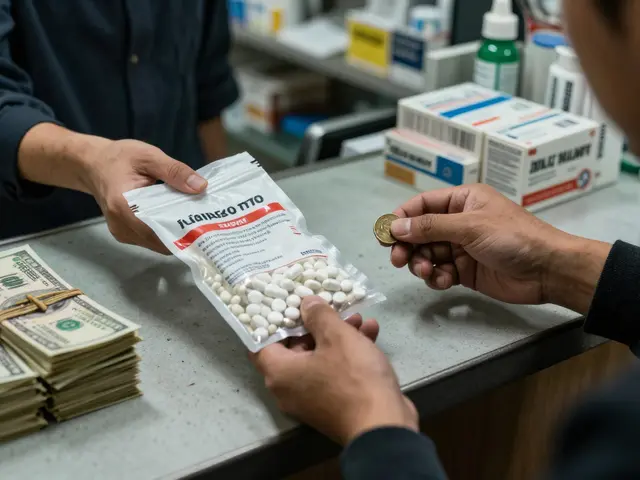Gas Relief Tips & Treatments – Find Fast Comfort
If you’ve ever felt that uncomfortable balloon in your belly after a big meal, you know how annoying gas can be. The good news is that most gas problems are easy to fix with a few lifestyle tweaks, some over‑the‑counter meds, and a couple of natural options. In this guide we’ll show you what usually causes gas, which products actually work, and how to keep the pressure down for good.
Common Causes of Gas
Everyone produces gas – it’s a normal part of digestion. The trouble starts when the amount builds up faster than you can release it. Typical culprits include:
- High‑fiber foods: beans, lentils, broccoli, onions, and whole grains ferment in the gut and release gas.
- Carbonated drinks: soda, sparkling water, and beer add extra air to your stomach.
- Artificial sweeteners: sorbitol and mannitol in sugar‑free gum or candy can be hard for gut bacteria to break down.
- Swallowing air: eating quickly, chewing gum, or smoking all let you gulp extra air.
- Food intolerances: lactose or gluten intolerance means your body can’t fully digest certain foods, leaving undigested bits to ferment.
Identifying your personal triggers is the first step. Keep a simple food diary for a week – note what you eat, how you feel, and when the gassiness hits. You’ll spot patterns faster than you think.
Effective Over‑the‑Counter & Natural Options
Once you know what’s causing the problem, you can choose the right remedy. Here are the most reliable choices:
- Simethicone tablets (e.g., Gas-X): these break down gas bubbles, giving you quick relief without affecting digestion.
- Activated charcoal: some people find a single dose before meals absorbs excess gas, though evidence is mixed.
- Digestive enzymes: products with alpha‑galactosidase help break down beans and vegetables, reducing fermentation.
- Probiotics: a daily dose of Lactobacillus or Bifidobacterium can balance gut bacteria, making gas production less frequent.
- Natural herbs: peppermint tea, ginger root, and fennel seeds are traditional anti‑gas aids. A cup of warm peppermint after dinner often calms the belly.
If you’re curious about newer supplements, the avocado sugar extract (mannoheptulose) has been studied for blood‑sugar control and may also influence gut metabolism. While it’s not a direct anti‑gas product, some users report smoother digestion when they include it in their routine.
When choosing any supplement, make sure the seller is reputable. Look for pharmacies that are registered with the local health authority and provide clear ingredient lists.
Finally, don’t forget simple habits that keep gas at bay:
- Eat slowly and chew each bite thoroughly.
- Avoid chewing gum and smoking.
- Limit fizzy drinks – try still water infused with lemon instead.
- Stay active. A short walk after meals helps move food through the gut.
Gas can be frustrating, but with a bit of trial and error you’ll discover what works best for your body. Try one change at a time, track the results, and you’ll soon enjoy meals without the unwanted after‑effects.
Ready to say goodbye to that bloated feeling? Start with a simple peppermint tea tonight, grab a pack of simethicone for emergencies, and keep a food diary to pinpoint the real triggers. Your gut will thank you.

Can Ulcers Cause Bloating and Gas? The Full Connection Explained
Explore how peptic ulcers can lead to bloating and gas, the underlying mechanisms, risk factors, treatment options, and practical tips for relief.
read more




